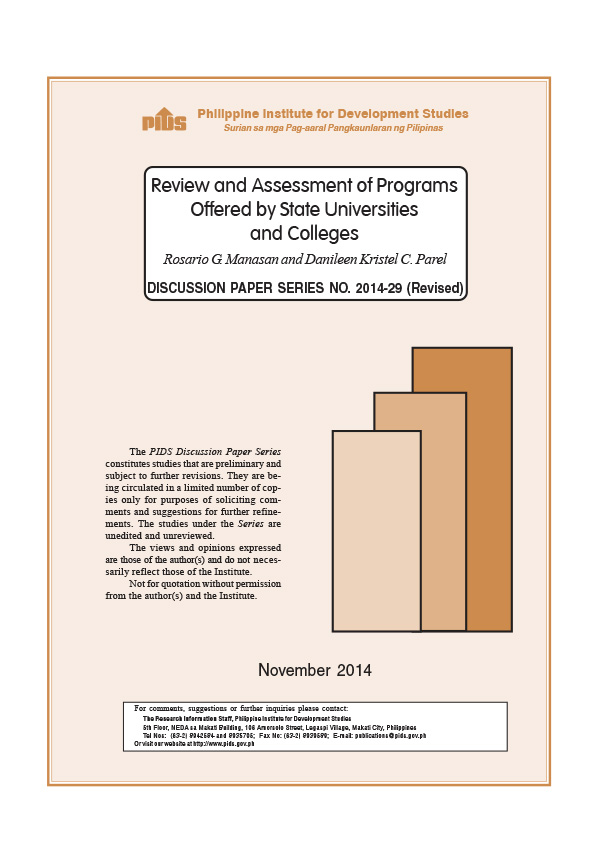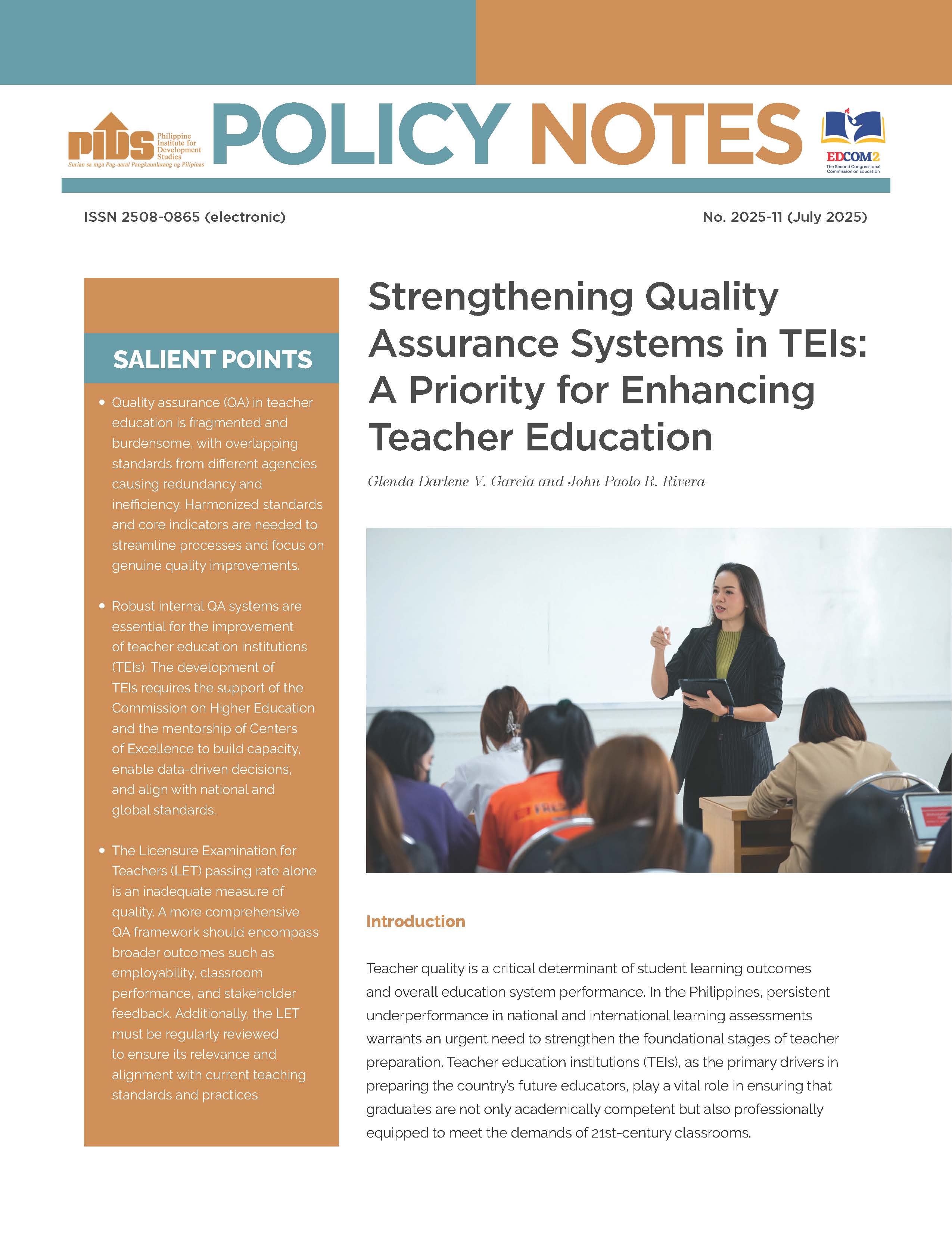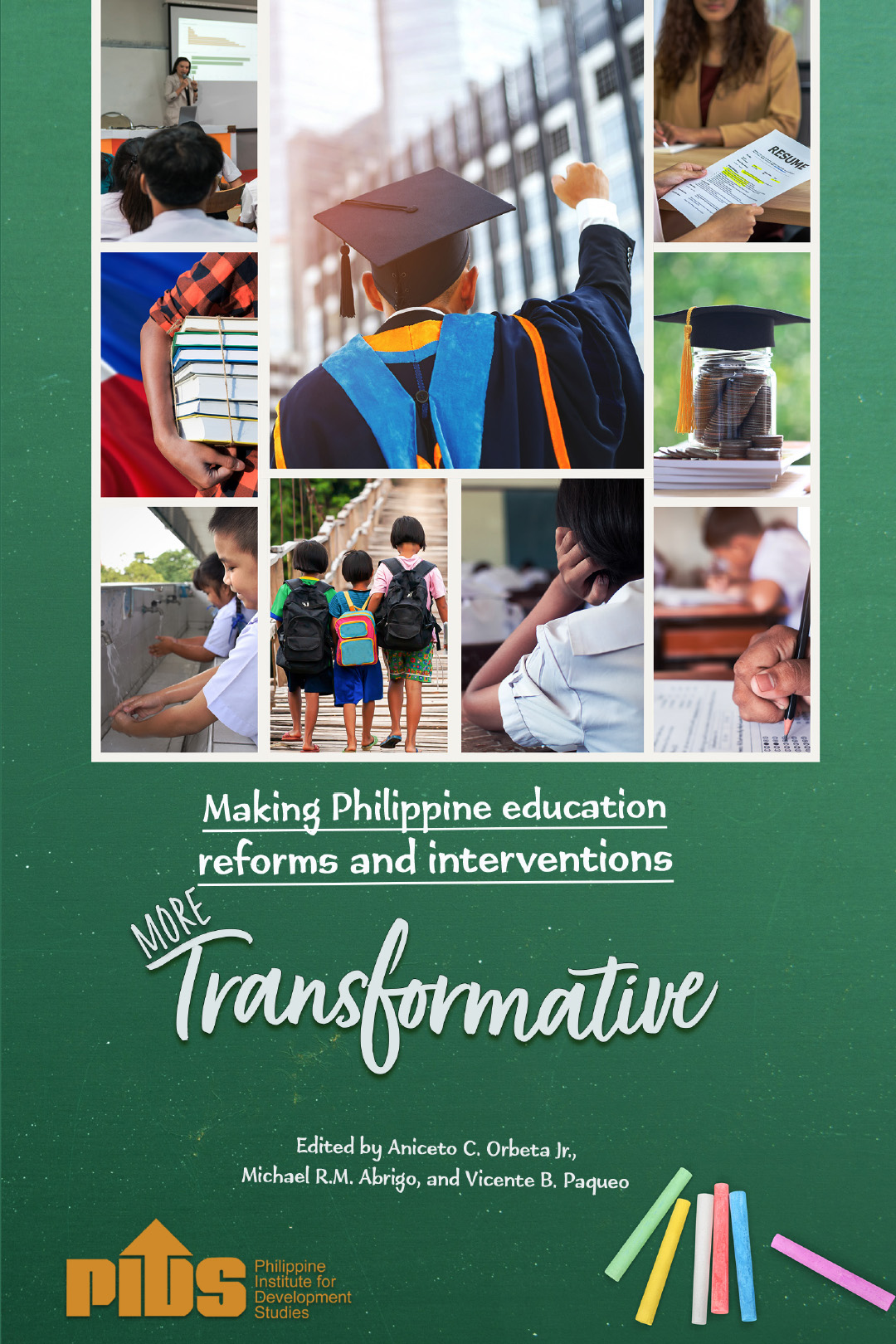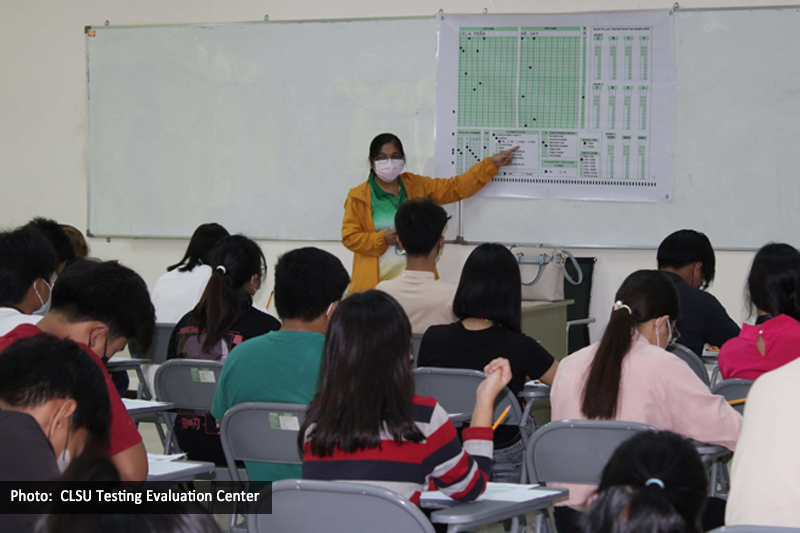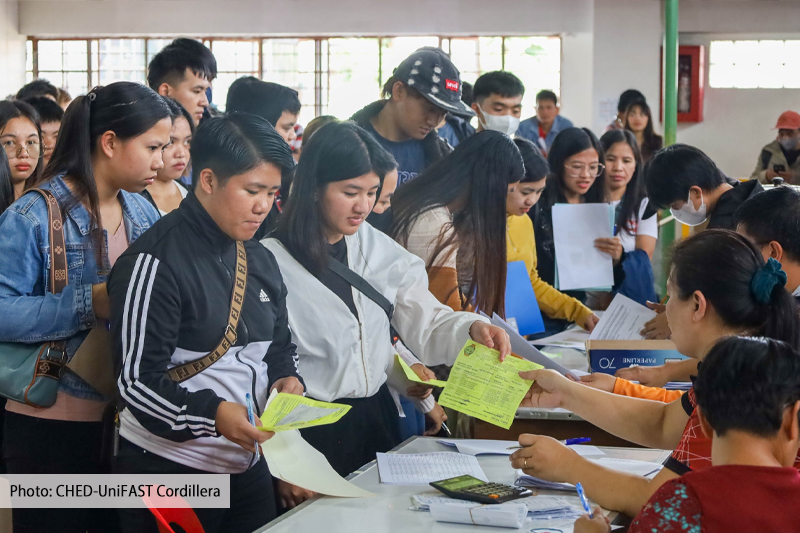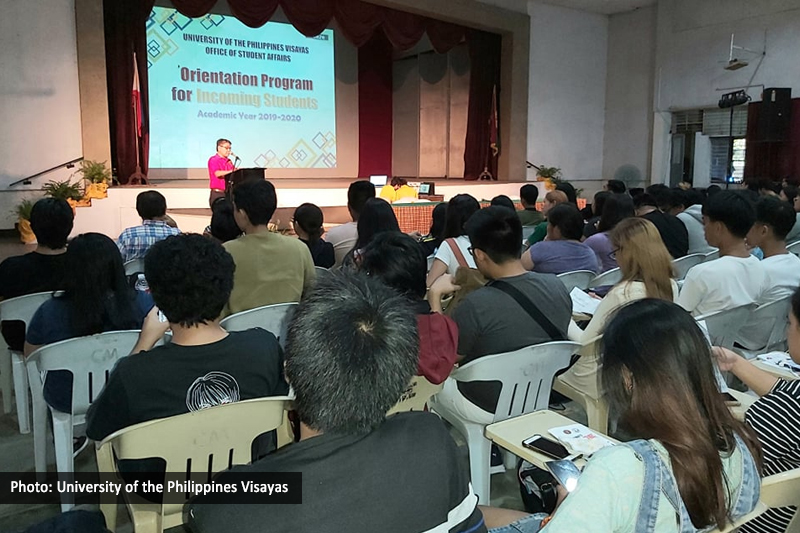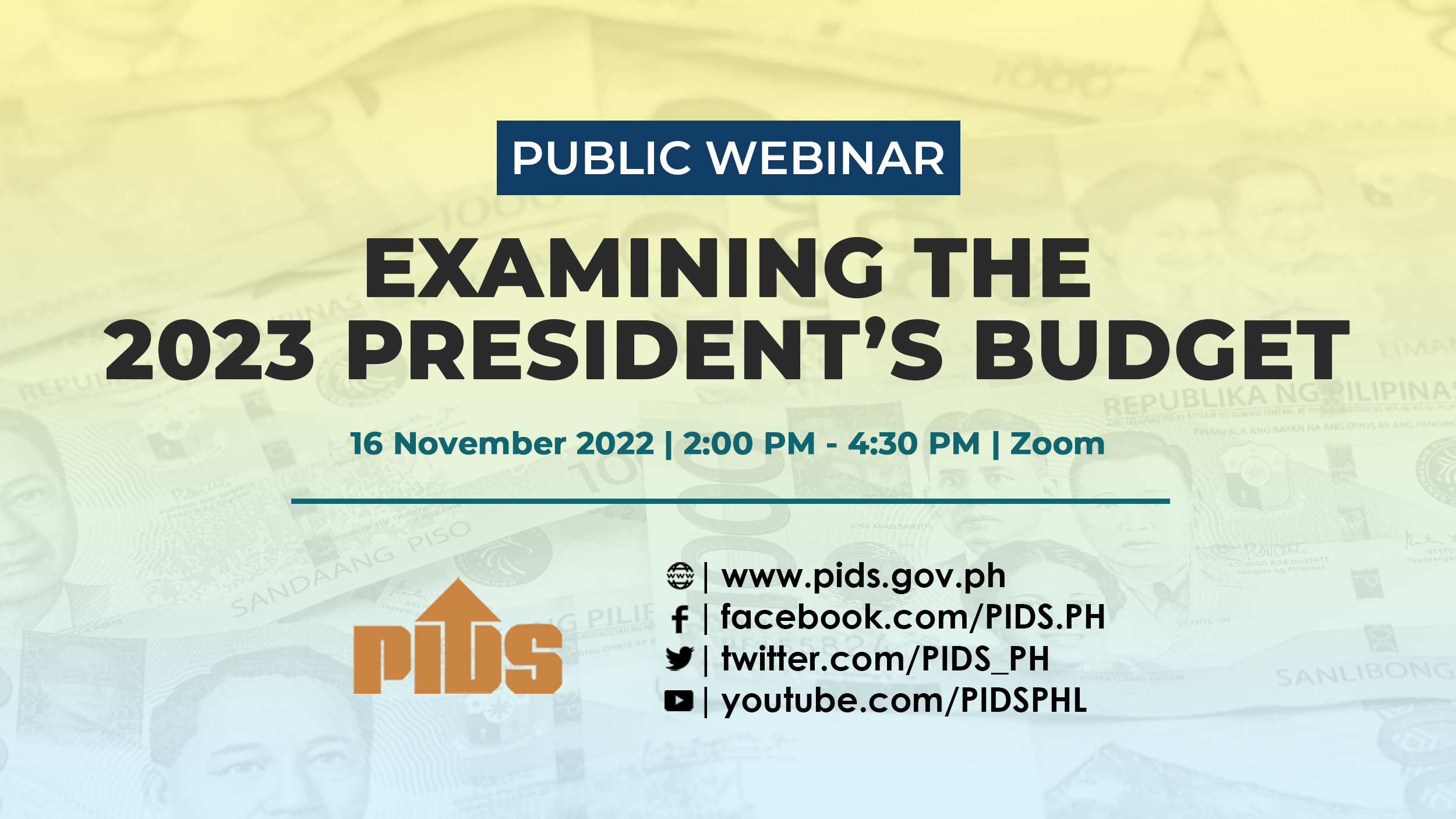The importance of tertiary education in promoting human development and improving the economy`s competitiveness has already been realized. However, state universities and colleges (SUCs) have always faced issues such as the quality of education, management and financial systems, and access, despite considerable funding support provided by the government. This study, which is an extension of a previous work to include all SUCs in the Philippines, aims to (i) review and assess the programs being offered by SUCs vis-a-vis their mandates, the courses being offered by other SUCs in the region, and the quality of graduates produced; and (ii) recommend courses of action to improve the relevance and quality of course offerings of the SUCs.
A review of the mandates of the SUCs in the Philippines indicates that the mandates of a number of SUCs are fairly broad to start with. Beyond this, the charters of most SUCs allow them to offer programs outside of their core mandates. Given the broad mandates of SUCs, it is not surprising that there is substantial duplication in their program offerings relative to those of private higher education institutions (PHEIs) and other SUCs in the same region where they operate. Moreover, high rates of program duplication appeared to be associated by an increase in the number of programs offered by SUCs during the period. At the same time, the quality of instruction in Philippine higher education has remained stagnant at a low level over the years. Although SUCs perform better than PHEIs in over 84 percent of professional board examinations (PBEs), SUCs have been able to improve their advantage further relative to PHEIs in the last seven years in about 31 percent of the PBEs where SUCs have an edge over PHEIs, but the lead that SUCs used to enjoy in the early part of the period has been eroded in over 69 percent of these PBEs. More worrisome is the preponderance of SUCs/PHEIs with zero passing rates in many PBEs in 2004-2011. Furthermore, closer scrutiny of SUCs` passing rate in PBEs indicate that a good number of them post passing rates that are well below the national average passing rate year after year.
Given these findings, it is recommended that (i) the Commission on Higher Education (CHED) enforces more vigorously its policy of closing existing programs of SUCs and PHEIs alike where these HEIs` performance is under par year after year; (ii) the CHED ensures that SUC program offerings comply with its policies, standards, and guidelines; (iii) the CHED weighs the advantages/disadvantages of centralization over decentralization with respect to the monitoring of SUCs; (iv) the CHED regional director becomes a regular member of the SUC Board; (v) the normative funding formula is adjusted so that SUCs do not get an additional subsidy from the national government for the additional enrollment resulting from their offering popular programs (i.e., SUCs may be allowed to offer popular programs provided they meet CHED standards and shoulder the full cost of doing so); and (vi) in order to uplift the overall quality of instruction, the more effective measures, such as faculty development and facilities upgrading, be considered.
Citations
This publication has been cited 2 times
- Manila Times. 2022. SUC mandates, programs require review, updating. Manila Times.
- Garay, Florencio. 2013. House Resolution 1814: A resolution directing the committee on higher and technical education to inquire, in aid of legislation, on the state of teacher education in the country, particularly on the low passing rates of examinees in the licensure examination for teachers, with the end in view of improving the quality of teachers and the delivery of quality education. House of Representatives.

